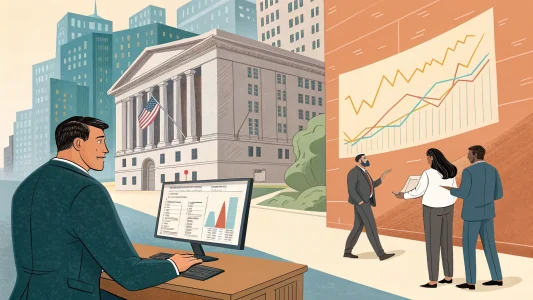Over the past three decades, farmland has emerged as a surprisingly robust and consistent investment vehicle, outperforming traditional investment options such as the S&P 500, real estate, gold, and bonds. This article delves into the reasons behind this trend, the dynamics of supply and demand that have fueled it, and why farmland investments remain relatively unknown in the mainstream financial advisory sector.
Table of Contents
ToggleConsistency in farmland returns
One of the most striking aspects of farmland as an investment is its consistency. Unlike other investment options, farmland has never recorded a negative calendar year in the past 30 years. This consistency is evident in the smooth trajectory of returns that farmland has generated over this period.
For instance, farmland remained positive during the dot-com bubble, when stocks were down for three consecutive years. Similarly, in 2008, when the S&P 500 plummeted by 37%, farmland recorded a positive return of 16%. This resilience and consistency make farmland a unique and attractive investment option.
View this post on Instagram
A post shared by Taylor Sohns – CFP®, CIMA®, MBA – Finance (@lifegoalinvestments)
Supply and demand dynamics
The consistent performance of farmland as an investment can be attributed to the fundamental principles of supply and demand. The global population continues to grow on the demand side, leading to an increased need for food. This trend is expected to continue, providing a steady demand for farmland.
On the supply side, as cities expand and populations grow, development often encroaches on farmland, reducing its availability. This phenomenon of urban sprawl has decreased the supply of farmland, further driving up its value.
The combination of increasing demand and decreasing supply creates a healthy investment recipe. It ensures that farmland retains its value and provides consistent returns, making it an attractive investment option.
Farmland: the underutilized investment
Despite its impressive performance as an investment, farmland remains relatively unknown in the mainstream financial advisory sector. Many typical advisors have never considered it a viable investment option.
However, institutions such as Harvard’s endowment have recognized the potential of farmland and have invested heavily in it. This suggests a significant untapped potential in farmland investments that many investors and advisors have yet to explore.
At LifeGoal, we have a deep understanding of farmland’s potential as an investment. Our background on the institutional side has allowed us to study and understand why institutions like Harvard’s endowment have invested heavily in farmland. We are not just salespeople but creative thinkers who recognize the potential of unconventional investment options like farmland.
Conclusion
Farmland has proven to be a consistent and robust investment option over the past 30 years, outperforming traditional investment options such as the S&P 500, real estate, gold, and bonds. The dynamics of supply and demand have played a significant role in this trend, with increasing demand and decreasing supply driving up the value of farmland.
Despite its impressive performance, farmland remains relatively unknown as an investment option in the mainstream financial advisory sector. However, institutions like Harvard’s endowment have recognized its potential and invested heavily.
Frequently Asked Questions
Q. What makes farmland a consistent investment?
Farmland has never recorded a negative calendar year in the past 30 years. Even during financial downturns, such as the dot-com bubble and the 2008 financial crisis, farmland has remained positive. This consistency is due to the fundamental principles of supply and demand. As the global population continues to grow, so does the demand for food, providing a steady demand for farmland. On the other hand, urban sprawl reduces the supply of farmland, further driving up its value.
Q. Why is farmland not a well-known investment option?
Farmland remains relatively unknown in the mainstream financial advisory sector despite its impressive performance. Many advisors have never considered farmland as a viable investment option. However, institutions like Harvard’s endowment have recognized its potential and invested heavily in it, suggesting that there is significant untapped potential in farmland investments.
Q. How does LifeGoal view farmland as an investment?
Our background on the institutional side has allowed us to study and understand why institutions like Harvard’s endowment have invested heavily in farmland. We are not just salespeople but creative thinkers who recognize the potential of unconventional investment options like farmland.
Q. How has farmland performed compared to traditional investment options?
Over the past three decades, farmland has outperformed traditional investment options such as the S&P 500, real estate, gold, and bonds. The dynamics of supply and demand have played a significant role in this trend, with increasing demand and decreasing supply driving up the value of farmland.

















